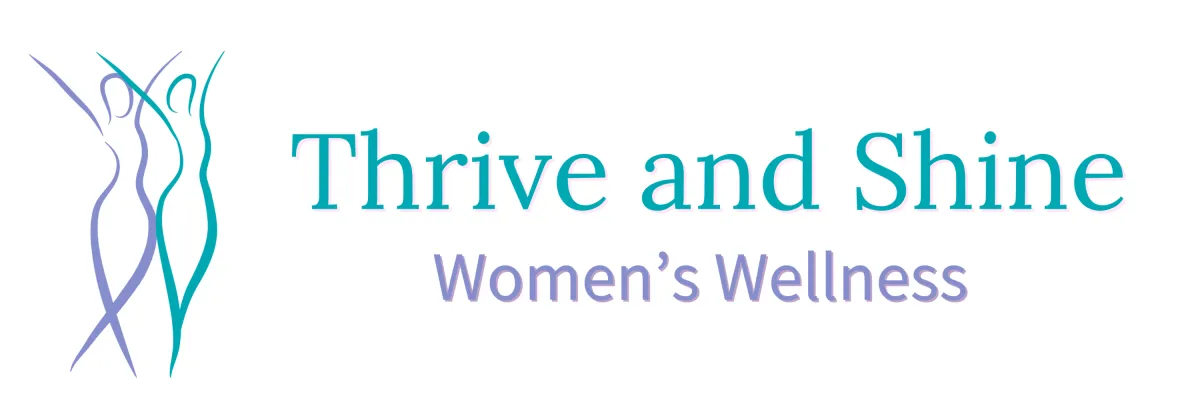BLOG
Step into Your Power. Learn, Transform, Thrive in Life Transitions. Embrace Your Best Self.

Work Stress and Its Impact on Women's Health
Introduction:
Navigating the ever-changing landscape of health as a women can be challenging. There is a delicate balance of hormones that govern our mental and physical health. If this balance is disturbed it can lead to symptoms and struggles that make home and work life more challenging. Hormones will fluctuate throughout our cycle but also as we age and head to menopause and beyond.
There are many things that can upset our hormonal balance and stress can be a major factor. A chronic increase in Cortisol levels (one of our stress hormones) can cause an imbalance in our sex hormones which can impact energy, sleep, physical and mental health. This can then affect our concentration and productivity at work and may lead to more sick days.
Understanding this intricate dance between stress, hormones, and work is crucial for both employees and managers. Recognising how stress influences women at different health stages is key. Learning to manage stress effectively becomes not just a personal tool for well-being but a way to create a healthier and more productive work environment.

Effect of Stress on PMS:
Premenstrual Syndrome (PMS) affects a significant number of women—around 20-40% during their reproductive years. Scientifically, PMS involves changes in hormones, specifically oestrogen and progesterone, during the later part of the menstrual cycle, leading to symptoms like mood swings and physical discomfort.
Research suggests that stress plays a role in making PMS symptoms more intense. Picture it like a dance between neurotransmitters (like serotonin) and hormonal changes during your monthly cycle. Stress influences key systems in our body—the hypothalamic-pituitary-ovarian (HPO) axis and the sympathetic nervous system—potentially making PMS symptoms feel stronger.
In simpler terms, stress can make PMS symptoms more challenging. Understanding this scientific connection helps shed light on why managing stress is crucial for a smoother monthly experience.
Effect of Stress on Pregnancy:
Navigating pregnancy is a crucial time for women, and the impact of stress, anxiety, and depression during this period can extend beyond personal well-being to affect work outcomes. Research suggests that these emotional factors may lead to challenges such as shorter gestation periods and lower birth weights in infants. Importantly, these effects can have implications for work, as the physical manifestations of stress and anxiety, such as back and pelvis pain, may contribute to discomfort and decreased productivity in a work environment.
For working women, managing stress during pregnancy becomes pivotal to ensure a healthier balance between personal and professional life. Addressing mental well-being is not only beneficial for the expectant mother but also contributes to a more positive and productive work environment. By understanding and proactively managing these factors, workplaces can play a crucial role in supporting the overall health and performance of pregnant employees.
Effect of Stress on Peri- and Post-Menopause:
During the course of peri-menopause, ovarian activity diminishes, resulting in reduced production of sex hormones—oestrogen, progesterone, and testosterone. The decline and imbalance of these hormones correlates with the onset of menopausal symptoms. The adrenal glands, responsible for synthesising stress hormones, also generate a small amount of sex hormones and takes over as the prime creator once the ovaries reduce their function. Complicating matters, stress and sex hormones made in the adrenals originate from the same basic building blocks.
Studies have shown that stress has a negative effect on menopause symptoms. This is thought to be due to shared building blocks—under stress, the biological resources earmarked for sex hormone synthesis are diverted to prioritise stress hormone production. Consequently, this shift contributes to a hormonal imbalance, exacerbating the severity of menopausal symptoms.
Moreover, research shows that stress can have physical effects during menopause. Increased levels of cortisol and fibrinogen, which are markers of stress, enhance inflammation, making menopausal symptoms like hot flashes, cold sweats, and night sweats more pronounced. Stress not only impacts mental well-being but also affects the immune, reproductive, and digestive systems.
The intricate interplay between stress, hormonal changes, and symptom severity underscores the importance of holistic approaches to managing stress during this life stage.

How to manage stress?
Incorporating stress-reduction techniques into your daily routine is crucial for overall well-being, regardless of your life stage. Consider these practical strategies that can seamlessly fit into a busy workday:
Exercise
Allocate short breaks for a brisk walk or integrate desk-friendly stretching exercises. Attend a quick lunchtime fitness class or practice a brief Yoga routine during breaks. The release of endorphins during exercise serves as a mood booster, while the reduction in cortisol levels helps alleviate stress.
Breathing Exercises
Take moments during meetings or work pauses to practice calming breathing exercises. Whether it's square breathing (inhale for 4 counts, hold for 4, exhale for 4, hold for 4) or alternate nostril breathing, discreetly incorporate these techniques at your desk. Evidence shows that mindful breathing exercises have a positive effect on reducing cortisol levels and improving overall well-being.
Meditation
Dedicate a few minutes of your lunch break or find a quiet space for a brief meditation session. Utilise meditation apps with guided sessions for a convenient desk-side practice. Meditation helps relax the mind and body, fostering a sense of calm amidst workplace demands.
Hypnosis
Listen to a short hypnosis recording during breaks or include it in your pre-work routine. Use headphones for a private and focused experience. Hypnosis aids in mental relaxation, contributing to stress reduction and improved focus during work.
Creative Activities
Keep a small creative project, such as a colouring book, at your workspace. Take short breaks to engage in these activities, offering a mental refresh. Creative pursuits are known to reduce stress hormone production and enhance overall well-being.
Journaling
Set aside a few minutes at the start or end of your workday for reflective journaling. Processing thoughts and feelings can aid in stress management and mood improvement. Journaling provides a structured way to work through stresses and enhance emotional awareness.
By seamlessly integrating these stress-reducing practices into your daily work routine, you can promote a healthier and more supportive environment, benefitting your overall well-being at any life stage.
References
1. Chumpalova P, Iakimova R, Stoimenova-Popova M, Aptalidis D, Pandova M, Stoyanova M, Fountoulakis KN. (2020). Prevalence and clinical picture of premenstrual syndrome in females from Bulgaria. Ann Gen Psychiatry, 19, 3.
2. Gollenberg AL, Hediger ML, Mumford SL, Whitcomb BW, Hovey KM, Wactawski-Wende J, Schisterman EF. (2010). Perceived stress and severity of perimenstrual symptoms: the BioCycle Study. J Womens Health (Larchmt), 19(5), 959-967.
3. Coussons-Read ME. (2013). Effects of prenatal stress on pregnancy and human development: mechanisms and pathways. Obstet Med, 6(2), 52-57.
4. Dunkel Schetter C, Tanner L. (2012). Anxiety, depression and stress in pregnancy: implications for mothers, children, research, and practice. Curr Opin Psychiatry, 25(2), 141-148.
5. Nosek, M., Kennedy, H.P., Beyene, Y., Taylor, D., Gilliss, C., & Lee, K. (2010). The effects of perceived stress and attitudes toward menopause and aging on symptoms of menopause. Journal of midwifery & women's health, 55(4), 328-334.

Sign up for our newsletter.
BLOG
Step into Your Power.
Learn, Transform, Thrive in Life Transitions.
Embrace Your Best Self.

Work Stress and Its Impact on Women's Health
Introduction:
Navigating the ever-changing landscape of health as a women can be challenging. There is a delicate balance of hormones that govern our mental and physical health. If this balance is disturbed it can lead to symptoms and struggles that make home and work life more challenging. Hormones will fluctuate throughout our cycle but also as we age and head to menopause and beyond.
There are many things that can upset our hormonal balance and stress can be a major factor. A chronic increase in Cortisol levels (one of our stress hormones) can cause an imbalance in our sex hormones which can impact energy, sleep, physical and mental health. This can then affect our concentration and productivity at work and may lead to more sick days.
Understanding this intricate dance between stress, hormones, and work is crucial for both employees and managers. Recognising how stress influences women at different health stages is key. Learning to manage stress effectively becomes not just a personal tool for well-being but a way to create a healthier and more productive work environment.

Effect of Stress on PMS:
Premenstrual Syndrome (PMS) affects a significant number of women—around 20-40% during their reproductive years. Scientifically, PMS involves changes in hormones, specifically oestrogen and progesterone, during the later part of the menstrual cycle, leading to symptoms like mood swings and physical discomfort.
Research suggests that stress plays a role in making PMS symptoms more intense. Picture it like a dance between neurotransmitters (like serotonin) and hormonal changes during your monthly cycle. Stress influences key systems in our body—the hypothalamic-pituitary-ovarian (HPO) axis and the sympathetic nervous system—potentially making PMS symptoms feel stronger.
In simpler terms, stress can make PMS symptoms more challenging. Understanding this scientific connection helps shed light on why managing stress is crucial for a smoother monthly experience.
Effect of Stress on Pregnancy:
Navigating pregnancy is a crucial time for women, and the impact of stress, anxiety, and depression during this period can extend beyond personal well-being to affect work outcomes. Research suggests that these emotional factors may lead to challenges such as shorter gestation periods and lower birth weights in infants. Importantly, these effects can have implications for work, as the physical manifestations of stress and anxiety, such as back and pelvis pain, may contribute to discomfort and decreased productivity in a work environment.
For working women, managing stress during pregnancy becomes pivotal to ensure a healthier balance between personal and professional life. Addressing mental well-being is not only beneficial for the expectant mother but also contributes to a more positive and productive work environment. By understanding and proactively managing these factors, workplaces can play a crucial role in supporting the overall health and performance of pregnant employees.
Effect of Stress on Peri- and Post-Menopause:
During the course of peri-menopause, ovarian activity diminishes, resulting in reduced production of sex hormones—oestrogen, progesterone, and testosterone. The decline and imbalance of these hormones correlates with the onset of menopausal symptoms. The adrenal glands, responsible for synthesising stress hormones, also generate a small amount of sex hormones and takes over as the prime creator once the ovaries reduce their function. Complicating matters, stress and sex hormones made in the adrenals originate from the same basic building blocks.
Studies have shown that stress has a negative effect on menopause symptoms. This is thought to be due to shared building blocks—under stress, the biological resources earmarked for sex hormone synthesis are diverted to prioritise stress hormone production. Consequently, this shift contributes to a hormonal imbalance, exacerbating the severity of menopausal symptoms.
Moreover, research shows that stress can have physical effects during menopause. Increased levels of cortisol and fibrinogen, which are markers of stress, enhance inflammation, making menopausal symptoms like hot flashes, cold sweats, and night sweats more pronounced. Stress not only impacts mental well-being but also affects the immune, reproductive, and digestive systems.
The intricate interplay between stress, hormonal changes, and symptom severity underscores the importance of holistic approaches to managing stress during this life stage.

How to manage stress?
Incorporating stress-reduction techniques into your daily routine is crucial for overall well-being, regardless of your life stage. Consider these practical strategies that can seamlessly fit into a busy workday:
Exercise
Allocate short breaks for a brisk walk or integrate desk-friendly stretching exercises. Attend a quick lunchtime fitness class or practice a brief Yoga routine during breaks. The release of endorphins during exercise serves as a mood booster, while the reduction in cortisol levels helps alleviate stress.
Breathing Exercises
Take moments during meetings or work pauses to practice calming breathing exercises. Whether it's square breathing (inhale for 4 counts, hold for 4, exhale for 4, hold for 4) or alternate nostril breathing, discreetly incorporate these techniques at your desk. Evidence shows that mindful breathing exercises have a positive effect on reducing cortisol levels and improving overall well-being.
Meditation
Dedicate a few minutes of your lunch break or find a quiet space for a brief meditation session. Utilise meditation apps with guided sessions for a convenient desk-side practice. Meditation helps relax the mind and body, fostering a sense of calm amidst workplace demands.
Hypnosis
Listen to a short hypnosis recording during breaks or include it in your pre-work routine. Use headphones for a private and focused experience. Hypnosis aids in mental relaxation, contributing to stress reduction and improved focus during work.
Creative Activities
Keep a small creative project, such as a colouring book, at your workspace. Take short breaks to engage in these activities, offering a mental refresh. Creative pursuits are known to reduce stress hormone production and enhance overall well-being.
Journaling
Set aside a few minutes at the start or end of your workday for reflective journaling. Processing thoughts and feelings can aid in stress management and mood improvement. Journaling provides a structured way to work through stresses and enhance emotional awareness.
By seamlessly integrating these stress-reducing practices into your daily work routine, you can promote a healthier and more supportive environment, benefitting your overall well-being at any life stage.
References
1. Chumpalova P, Iakimova R, Stoimenova-Popova M, Aptalidis D, Pandova M, Stoyanova M, Fountoulakis KN. (2020). Prevalence and clinical picture of premenstrual syndrome in females from Bulgaria. Ann Gen Psychiatry, 19, 3.
2. Gollenberg AL, Hediger ML, Mumford SL, Whitcomb BW, Hovey KM, Wactawski-Wende J, Schisterman EF. (2010). Perceived stress and severity of perimenstrual symptoms: the BioCycle Study. J Womens Health (Larchmt), 19(5), 959-967.
3. Coussons-Read ME. (2013). Effects of prenatal stress on pregnancy and human development: mechanisms and pathways. Obstet Med, 6(2), 52-57.
4. Dunkel Schetter C, Tanner L. (2012). Anxiety, depression and stress in pregnancy: implications for mothers, children, research, and practice. Curr Opin Psychiatry, 25(2), 141-148.
5. Nosek, M., Kennedy, H.P., Beyene, Y., Taylor, D., Gilliss, C., & Lee, K. (2010). The effects of perceived stress and attitudes toward menopause and aging on symptoms of menopause. Journal of midwifery & women's health, 55(4), 328-334.

Sign up for our newsletter.




